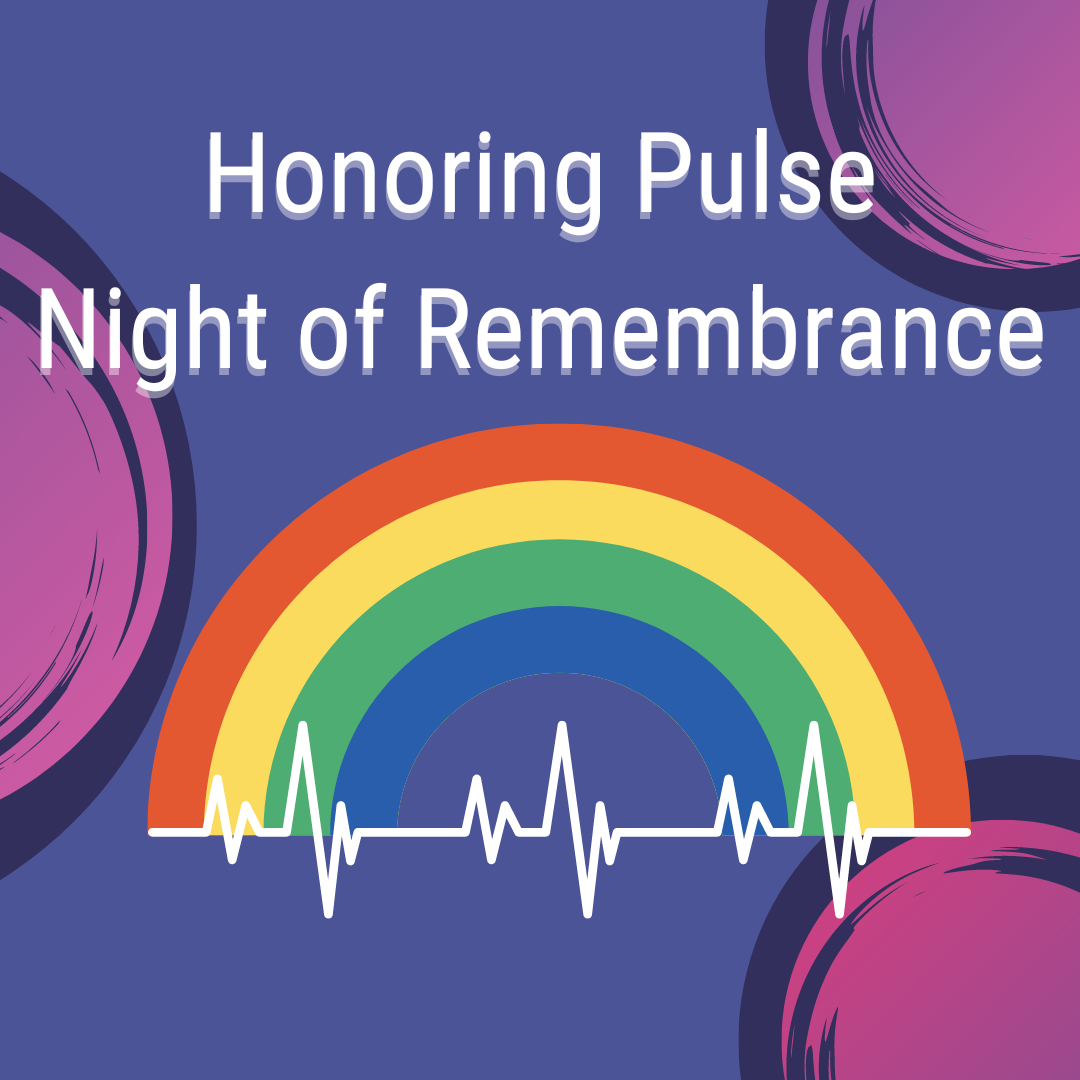Content Note: violence against LGBTQIA+ persons and community.
Pride Month is upon us: a month of the celebration, joy, laughter, and brightly colored outfits. Alongside the euphoric moments of Pride, however, it is important that we stand united in reflection on the hardships the LGBTQIA+ community has been through and also continues to face and fight against.
June 12th, 2023 will mark seven years since the tragic Pulse nightclub shooting that took place in Orlando, Florida in 2016. On this cataclysmic night, a man opened fire in Pulse nightclub in the early hours of the morning, claiming the lives of 49 individuals and leaving over 50 wounded. The Pulse shooting was one of the deadliest shootings in U.S. history, and stands as one of the deadliest acts of violence specifically targeting the LGBTQIA+ community.
Pulse Night of Remembrance is an annual memorialisation of this tragic event, observed in order to remember the individuals—mostly Latinx members of the LGBTQIA+ community— who were targeted that night. This act of remembrance serves as a day of reflection on the years of violence faced by members of the LGBTQIA+ community, and that many continue to face today.
Community action, solidarity, and awareness on Pulse Night of Remembrance
The onePULSE Foundation was established after this tragic night, to create “a sanctuary of hope” and “honor the 49 Angels that were taken, the 68 others who were injured and the countless first responders and healthcare professionals who treated them.” This foundation organizes and funds educational programs, memorials, and events in order to keep the memory of the significance and importance of this event alive.
In 2023, onePULSE announced the fourth class of recipients of their 49 academic scholarships—with 49 being the number of lives lost that night-—which enroll students in universities all over the United States. These scholarships are based on the interests and careers of the victims, “as an extension of their impact on our world” through helping students with similar aspirations and dreams as the victims, granting those who were lost a living legacy to leave behind for years to come.
Furthermore, the onePULSE Foundation, as well as having a permanent memorial and museum in remembrance of victims and survivors, has announced a Seven-Year Pulse Remembrance Week to honor and preserve the memory of the victims through acts of loving and kindness, rainbow runs, bake sales, charity bingo, drag story time, and much more.
The beauty of onePULSE is not simply all the help it gives to the community through educational scholarships, programs, events, museums, and family days, but also that it in itself is a community, too. It embodies what Pride is about: building, creating, grieving, celebrating, fighting, and loving together. It shows the need for positive and constant change through social movements and community-building, which are essential parts of Pride.
How has this Tragedy impacted LGBTQIA+ history?
As we have seen in the beautiful community-building and solidarity movements exemplified by onePULSE, this tragic event has led to a strong recognition of the need for progress, to keep fighting for queer rights, and to continue to educate. The importance of education, openness, and love on days like Pulse Night of Remembrance should be at the center of Pride.
After the Pulse tragedy, this day has served to invigorate these very core values. Former Representative Carlos Guillermo Smith, elected in 2016 after the shooting, was the first openly queer Latinx lawmaker in Florida. He said that after Pulse, more love and acceptance towards LGBTQIA+ people was spread in Orlando, and it even helped push back transphobic Trump policies at the time. He also observed various different marginalized communities “all working together to disarm hatred and bigotry”—and saw much Latinx queer leadership in these movements, too.
The impacts of this night on LGBTQIA+ history are not only seen on a policy level, but are also still visibly present in these communities through both acts of solidarity and education movements pushed by incredible individuals who work to keep this memory alive and relevant.
How do we remember?
Remembrance is a concept that is experienced and lived in different ways. There are multiple and intersecting ways through which one can honor and remember the victims of this tragedy, as well as their lasting impact on our world.
One way to honor the memory and significance of this event is by continuing to stand and fight for queer people in your community and beyond. The global increase in transphobic attacks, including the devastating impacts of transphobic discourse regarding trans children and subsequent impact on their mental, emotional, and physical well-being; the continuation and promotion of cisheteronormative culture—all of these need community-level resistance so that we may all continue to take up the joyous and queer spaces we have fought to hold.
That—among various other ways—is how you remember.
Written by Alicia Caldentey Langley.




